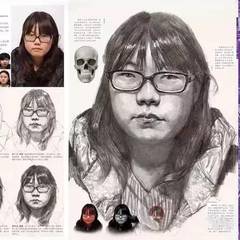热门推荐
 留学生杭州余杭区f类人才认定标准是什么
留学生杭州余杭区f类人才认定标准是什么
 留学生喝什么让人三句话就听出来
留学生喝什么让人三句话就听出来
 留学生祖儿另一个名字叫什么来着
留学生祖儿另一个名字叫什么来着
 留学生在国外听不懂课怎么办用什么app
留学生在国外听不懂课怎么办用什么app
 一年制的留学生什么时间参加校招
一年制的留学生什么时间参加校招
 为什么留学生疯疯癫癫不能说话
为什么留学生疯疯癫癫不能说话
 在澳大利亚留学第一步要先办什么
在澳大利亚留学第一步要先办什么
 留学生为什么文科生比理科生多
留学生为什么文科生比理科生多
不是吗用英语怎么说
不是吗 (bú shì ma) is a Chinese phrase that can be translated to "isn't it" or "don't you think so" in English. It is used to confirm or seek agreement with something that has been said.
Here are some examples of how 不是吗 can be used in a sentence:
他长得很帅,不是吗? (Tā zhǎng de hěn shuài, bú shì ma?) - He is very handsome, isn't he?
这个主意很好,不是吗? (Zhè ge zhǔ yì hěn hǎo, bú shì ma?) - This idea is very good, don't you think so?
我们明天见面,不是吗? (Wǒ men míng tiān jiàn miàn, bú shì ma?) - We will meet tomorrow, won't we?
The phrase 不是吗 comes from the Chinese words 不 (bú), which means "not" or "no," and 是吗 (shì ma), which is a question particle used to turn a statement into a yes-or-no question.
猜你喜欢内容
-
留学生杭州余杭区f类人才认定标准是什么
根据杭州余杭区官方信息,留学生申请F类人才认定需满足以下条件之一:学历背景 博士或硕士研究生,需为Q...
-
留学生喝什么让人三句话就听出来
留学生群体因文化背景、饮食习惯和个人口味差异较大,但以下饮品具有较高的普遍性和辨识度,三句话内容...
-
留学生祖儿另一个名字叫什么来着
很抱歉,根据现有信息,关于留学生祖儿的另一个名字,目前可查的信息中并未明确提及。根据搜索结果分析...
-
留学生在国外听不懂课怎么办用什么app
针对留学生在国外听不懂课的问题,以下是综合多个权威来源的解决方案及推荐应用:Otter 支持手机、平板...
-
一年制的留学生什么时间参加校招
一年制留学生参加校招的时间安排需根据入学时间、毕业时间以及校招时间线综合判断,具体规则如下:国内...
-
为什么留学生疯疯癫癫不能说话
留学生出现沉默或异常行为(如"疯疯癫癫")可能由多种因素综合作用,以下是主要分析:教育体系差异 国内...
-
在澳大利亚留学第一步要先办什么
在澳大利亚留学的第一步,首要任务是 选择合适的院校和专业 。以下是具体建议和注意事项:研究院校排名...
-
留学生为什么文科生比理科生多
留学生中文科生比例较高的现象可以从多个维度进行分析,结合国内外教育环境、社会认知及个人发展需求综...
-
花几百万出去留学到底有什么用
花费数百万出国留学,其价值远超经济层面的回报,主要体现在以下几个方面:国际竞争力增强 留学经历能显...
-
留学生f1转f2是什么意思
留学生从F1签证转为F2签证(家属签证)是指在满足一定条件下,将留学生身份变更为其F1配偶或未成年子女...




















